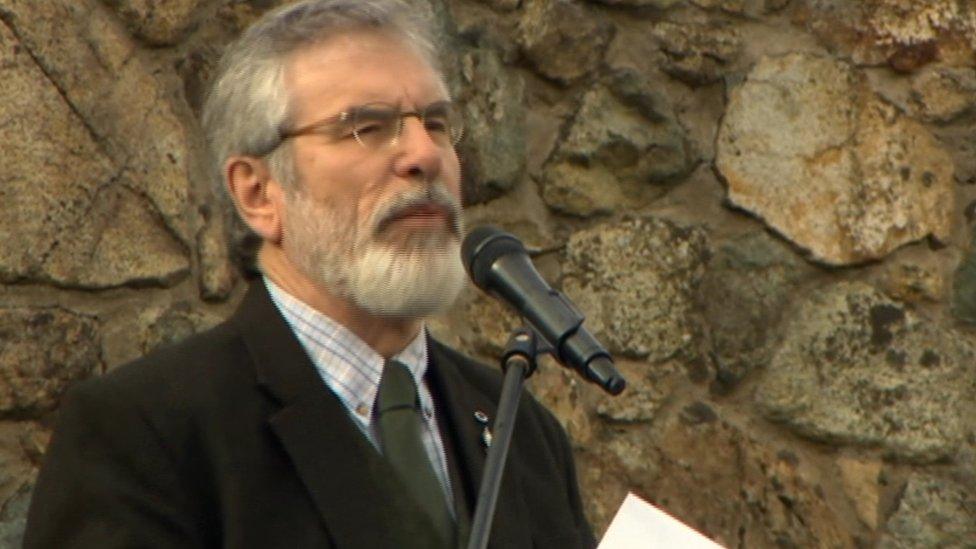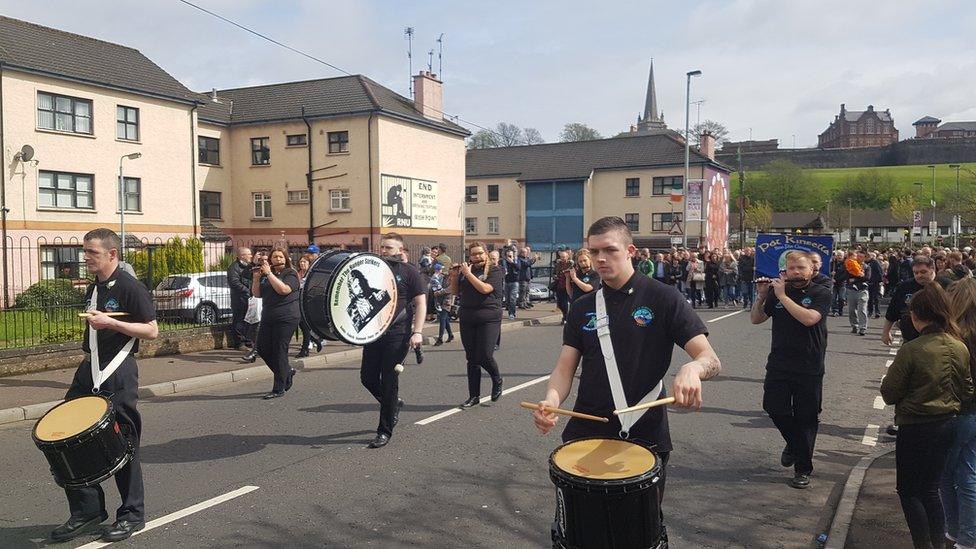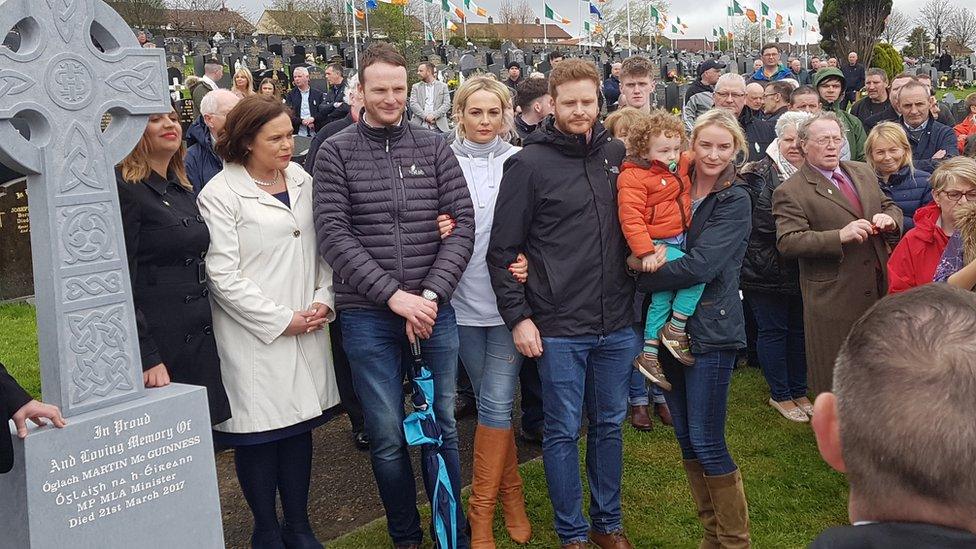Sinn Féin's Gerry Adams: Election must happen if there's no Stormont deal
- Published

Gerry Adams said the Irish government must ensure an election is held if there is no deal
If political talks do not produce a deal to restore Stormont then there must be another election, Sinn Féin president Gerry Adams has said.
Mr Adams was speaking at a republican Easter Rising commemoration in Carrickmore, County Tyrone.
He said it was the Irish government's responsibility to ensure direct rule was avoided and an election held if no deal emerged.
The current talks process is due to resume after Easter.
Stormont's parties have yet to reach agreement on forming an executive six weeks after the assembly election.
The political deadlock began after a snap election on 2 March brought an end to Stormont's unionist majority.
'Intransigence'
Secretary of State James Brokenshire warned that either direct rule or another election will be the result of no agreement being reached by early May.
However, Mr Adams told the commemoration the Irish government must ensure that an election took place.
"The current talks process has paused. But let me be very clear, it is the British government's intransigence on legacy issues and the DUP's rejection of the principles of equality, parity of esteem and rights that have made it more difficult to reach a deal," he said.
"Sinn Féin wants a deal. But if there is no deal then there has to be an election.
"The role and responsibility of the Irish government must be to assert that an election is the only legal course open to the British government, if the current talks fail to elect an executive."

Easter Rising commemorations, such as this one in Derry, have taken place across Northern Ireland
He added that "progressive parties should not fear an election".
Mr Adams also said that "if what we have seen from the DUP in recent times continues, that will only guarantee that there will be no DUP first minister and no return to the status quo at Stormont".
Under Northern Ireland's power-sharing agreement, the executive must be jointly run by unionists and nationalists, with the largest party putting forward a candidate for first minister.
Sinn Féin's Martin McGuinness quit as deputy first minister in January in protest against the DUP's handling of a botched green energy scheme.

Martin McGuinness' headstone was unveiled during the Easter Rising commemoration in Derry's City Cemetery
The party said it would not share power with Mrs Foster as first minister until the conclusion of a public inquiry into the Renewable Heat Incentive (RHI) scheme.
Mr McGuinness died last month at the age of 66.
His headstone was unveiled as part of the Easter Rising commemoration in Derry's City Cemetery on Sunday, which was attended by Sinn Féin's deputy leader Mary-Lou McDonald.